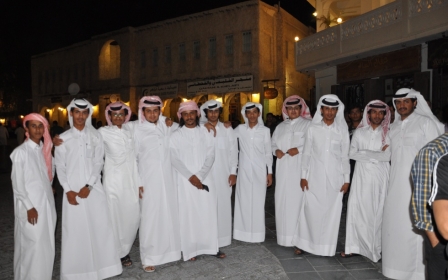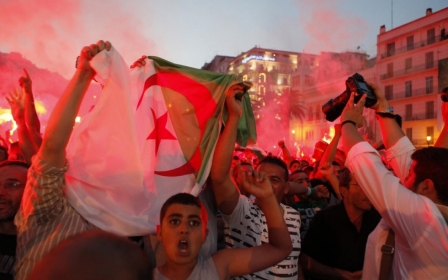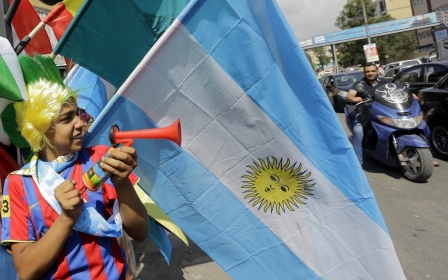Challenging goals for Syria's 'alternate national team'

TRIPOLI, Lebanon – The joy and despair of 2014 World Cup in Rio is fading into memory, but for one young team of opposition Syrian refugees living in a heavily populated neighbourhood of Lebanon’s Tripoli, there is a greater prize still up for grabs – restoring hope to their country.
Made up of refugees, former professional players and some of whom fought for the Free Syrian Army, the group of young men are calling themselves the alternative Syrian national team.
The team lives seven floors up in a dorm with nothing more than a few futons and blankets, they sit on bare floors and take naps out under the laundry hanging from the line.
Their life is simple and it keeps them close together. Far from the stadium lights, they rely on each other, trying to create a life that doesn’t look like the war zone they’ve been teetering the last few years.
Over the last three years, each player survived the bloody conflict in different ways – some escaped after having defended their homes with guns, others fled with their families, but most are here on their own, trying to prove that they are more than refugees. Sport is their outlet and voice in the struggle for freedom.
Nehad is the captain of the team. He says that while he never had to shoot anyone, he did carry a gun and try to defend his home, He was injured by shrapnel to his legs, but it has not prevented him from playing. He was a football player in Syria for a well-known professional club, but when Homs began to deteriorate, he fled, "I defected," he says.
He met with several other players in Lebanon and they decided to form a team. They train daily and are often paying out of their pocket to rent practice fields and buy uniforms, which carry the flag of the Free Syrian Army.
One of Nehad's team-mates, Nour, arrived just three months ago, another from Homs.
"I was a civilian, not a fighter," Nour states. He says family was forced to leave and while his family fled to Egypt, he decided to come to Lebanon. He played club football for nine years in Syria and when local relatives told him about Nehad's team, he tried out.
They are currently observing Ramadan by day so practice football by night, "We wake up early, train for an hour and then spend time with our friends and pray. This is normal life."
Nour smiles when he thinks about the future: "I want this team to represent Syria, a free and independent Syria."
Nehad says his team is filled with good players, and is dismissive of the Syrian national team, "They are with the regime."
The Free Syrian team has played tournaments in Lebanon against other Syrian teams, they have also played in Lebanese and Palestinian leagues and they have even earned a few trophies. They have a good relationship with the other teams, a friendly rivalry even, and everyone accepts calls them the “Revolution Team.”
But Nehad worries for his teammates, saying that refugees like them aren’t welcome in Lebanon.
He also fears for his family, who is still in Syria. He doesn't want to see them harmed, but he does believe in what he is doing. Nehad and his team want to create a divisional football league, to build something for Syrians.
The present Syrian National team was disqualified almost three years ago over an ineligible player. Nehad wants to change that with the Free Syrian National Team.
He is passionate about the young men who look up to him. He wants to see them succeed and is deeply saddened at the state of his country. His home also destroyed in Homs as well and he is now a refugee in Lebanon.
As the evening comes to a close in Tripoli, the air gets cooler and the sun starts to sink, the players set up cushions on the balcony and bring out the food to break their fast.
The last call to prayer rings out from the mosques, signifying the end of the day and giving Ramadan observers permission to break their fast, the hungry players scarf down chicken, bread and pizza. There's plenty of Pepsi and cigarettes to go around. They laugh and joke about the 2014 World Cup, most of them were fans of Argentina.
Their life is simple here, but the stakes are high for them as they watch over their shoulders constantly, still aiming for the biggest trophy in their dreams - a peaceful and free Syria.
Middle East Eye propose une couverture et une analyse indépendantes et incomparables du Moyen-Orient, de l’Afrique du Nord et d’autres régions du monde. Pour en savoir plus sur la reprise de ce contenu et les frais qui s’appliquent, veuillez remplir ce formulaire [en anglais]. Pour en savoir plus sur MEE, cliquez ici [en anglais].






